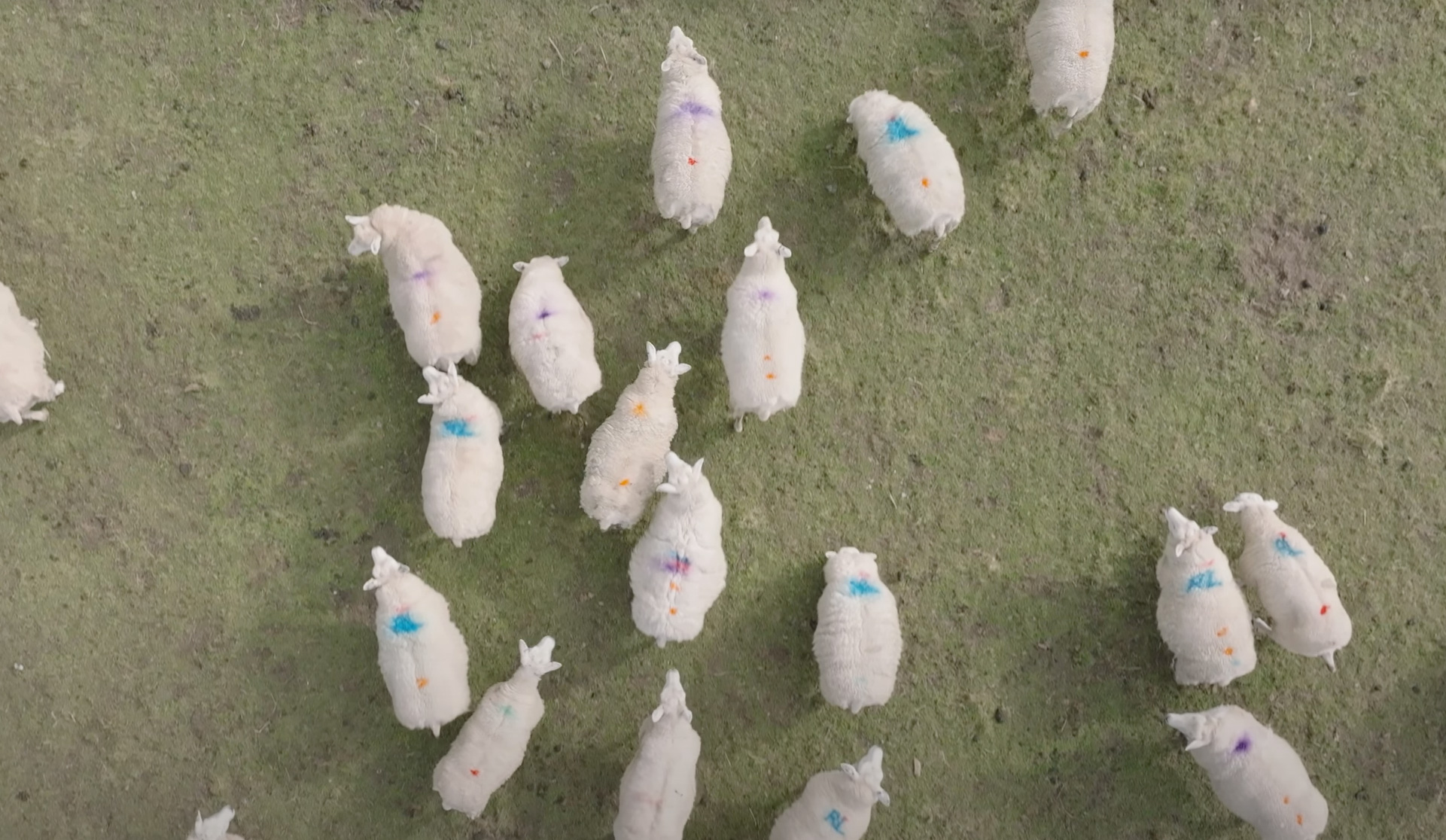Led by Langrish Farmers, this project looked at improving the quality and value of UK wool. Working with British Wool, the National Sheep Association (NSA) and the Wool Testing Authority Europe (WTAE), this project focused on reducing the micron count for use in premium textiles.
The Wool Innovation Community, part of Innovate UK’s Circular Economy Innovation Network and led by the Innovate UK Business Connect AgriFood team, was launched in 2022 to revive the overlooked potential of UK wool. Once seen as a low-value by-product of the sheep industry, wool is now being recognised as a renewable, biodegradable smart material that could transform the sustainability of modern industries.
Innovate UK Business Connect brought together over 550 stakeholders – from farmers to retailers and designers – to form the Wool Innovation Community and create the Wool Innovation Action Plan focused on exploring new markets, circular design, new business models, and material reuse. This collaborative effort has led to the emergence of novel applications for wool across various sectors including construction, horticulture, and packaging. The following case study explores one of these projects.
Introduction
The ‘Fabulous Fibre’ project was a pioneering genetics and breeding initiative to improve the quality and value of UK wool for applications requiring a soft, fine material (e.g. clothing), led by Langrish Farmers in collaboration with key industry partners: British Wool, the National Sheep Association (NSA) and the Wool Testing Authority Europe (WTAE). Technical support and data analysis was provided by the UK Agri-Tech Centre and partnering and application support from Innovate UK Business Connect. The project findings have the potential to elevate the UK’s wool sector by producing finer, more desirable wool for high-end textile markets.
Challenge
The UK wool industry faces significant challenges, including low wool prices and limited high-end textile market demand. Much of the UK wool produced is coarse and primarily used for carpets and insulation, rather than high-value textiles. This situation is exacerbated by a lack of data on individual sheep’s wool quality and the absence of on-farm measurement tools, making it difficult for farmers to improve and capitalise on their wool production.
Approach
The ‘Fabulous Fibre’ project focused on reducing the micron count – the diameter of wool fibres – to produce finer, softer wool suitable for premium textiles (anything below 30 micron significantly increases wool value for this market). The project began with a feasibility study on Langrish Farmers’ sheep flock, aiming to identify superior breeding stock and evaluate lambs born in 2024 for genetic control of micron count. Additionally, the team tested an on-farm, portable wool tester for real-time data collection, providing farmers with immediate feedback on wool quality. The project demonstrated that 90% of the lambs resulting from the breeding programme having increased wool fineness at <30 micron, without making any difference to the quality of the lambs for the meat market.
Benefits
By enabling farmers to produce finer wool, the project aimed to:
- Increase profitability: Finer wool commands higher prices, enhancing farm income as lower micron wool is softer and more desirable for textile applications.
- Improve sustainability: Focusing on premium wool production allows for potentially smaller flocks, reducing environmental impact.
- Expand market opportunities: Finer wool opens doors to new markets, such as high-quality clothing and fashion, diversifying income sources for farmers.
How Innovate UK Business Connected accelerated the innovation
The collaborative environment created through the Wool Innovation Community enabled the development of innovative solutions to enhance wool quality and marketability. Innovate UK Business Connect played a crucial role in the ‘Fabulous Fibre’ project by providing one-to-one support to find partners and suitable funding and helped to shape the project proposal.
Innovate UK Business Connect’s support through the Wool Innovation Community has been invaluable in creating a safe space for open dialogue and collaboration. By connecting academics, practitioners, and companies, it’s helped share real-world wool innovation and inspired new thinking about its potential. It was surprising to see just how much is happening on the ground, and the Community played a key role in encouraging, supporting, and even initiating several impactful projects.
Phil Stocker, Chief Executive of the National Sheep Association.
At British Wool, our goal is to maximise returns for UK sheep farmers. Innovation is essential to that. We’re working with over 150 different types of wool, each with unique characteristics, so finding the right application is key. The Wool Innovation Community played a vital role in connecting people, encouraging new ideas, and helping match the right type of wool with the right end use. Whether it’s the bounce of Suffolk wool for bedding or the durability of mountain wool for carpets and insulation, innovation helps drive demand – and ultimately, value back to the farmer. To truly make a difference, we need brands and consumers to recognise the technical, environmental, and ethical strengths of British wool and choose it deliberately.
Andrew Hogley, Chief Executive Officer of British Wool.


